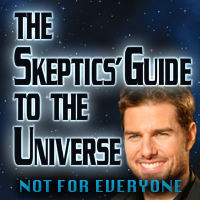This boring book is in a way interesting but overall gets filed under 'boring'. I'm talking about Prêtres et scientifiques by Jean-Michel Maldamé.
I thought this was going to be an interesting read. I got bogged down. It took me three afternoons to finish a mere 200 pages.
The outset is good: What is the relation between science and religion for some well known priest-scientists and did they conflict in any way in their research?
To investigate this he chooses five priest-scientists from Pierre Gassendi (tried to reconcile Epicurian atomism with christianity), Bernard Bolzano (of Bolzano theorem fame; he is erronously named 'Pierre' Bolzano on the cover), Henri Breuil (prehistorian), Pierre Teilhard de Chardin (famous for having conflicts with Rome on the doctrine of original sin and a less strict interpretation of the book of Genesis) and home-grown George Lemaître (alumni of my university and the first person to propose the theory of the expansion of the Universe, widely misattributed to Edwin Hubble). The choice looked very promising. Different fields of research, different time periods, different stances on the religion/science relationshop. But...
I don't really like the way French authors write. They never use one sentence if they can say it in three. If I were just to read the two pages of the conclusion every scientist gets at the end of his own chapter that would have saved me a lot of bother.
Plus the author is very much biassed, being a dominican himself. He interprets certain things as very pious or courageous in light of religion and priestly devotion to the catholic cause.
Plus I cannot stand sentences with exclamation marks.
I did like how he explained the way the religion shaped the scientific research or the philosophical and theological work of the priest-scientists, although Lemaître stressed several times that religion had no place in scientific research and vice versa. Somewhere toward the end Maldamé concludes that these five men voulu lier les champs du savoir separé. But he does not present any convincing evidence for the case of Lemaître, quite the opposite.
Of course the author chose 5 individuals who were easy to analyze because they had written a lot about their relationship between their research and their religious background and calling. But I would like to have Maldamé broadened his research and find some priest-scientists who failed to keep religion separated from their science. I'm sure he could have equally found five of those which would have made a more varied and balanced read.
Anyway, it was a compulsory read for a subject I'm taking this year on the Church in society in the 19th and 20th century.
Subscribe to:
Post Comments (Atom)




No comments:
Post a Comment